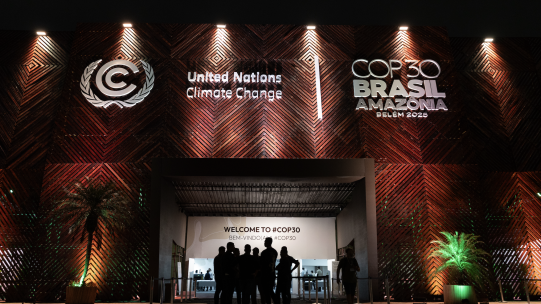Finnish forestry giant takes action to eliminate gender pay gaps
Read more

Finland’s UPM set out to solve a mystery — find and fix unexplained gaps in pay among its roughly 17,000 employees spread across the 46 countries where the forestry giant operates.
The multinational producer of biochemicals, biofuels, fibre, pulp, paper and wood products turned up 400 cases of workers with unexplained gender gaps in their pay in its debut equity review in 2021. That was 2.3 per cent of its workers in 10 countries. Their pay was adjusted at the start of 2022.
A second such review continued the practice of conducting a company-wide review and implementing pay adjustments for unexplained gaps.
UPM’s pay equity reviews look for gender pay gaps that cannot be explained by job performance, work experience, job grade or location, the factors that typically determine salaries, the company said.
Seeking the root cause of the gaps, UPM found its annual salary reviews, promotions and bonus decisions were free of gender-related disparities. Instead, it found the gaps originated largely in gender-related lower starting salaries for women, said Riikka Ahola, UPM’s Vice President for Rewards.
“You really need to tackle the root cause. It’s those starting salaries,” Ahola said.
As a remedy, the company is training managers and human resource departments on how to make salary decisions and offers when hiring new employees, she said. That's particularly important as women often ask for less money than male candidates for the same job, she said.
“We need to tackle that and be ready to pay for the job that we are filling in and not pay for the candidate based on gender,” Ahola said.
Fueling this effort has been UPM’s participation in the United Nations Global Compact, which it joined in 2003.
It has utilized the tools and resources of the Global Compact, including participating in three Action Platforms – “SDG Reporting,” "Climate Ambition" and "Decent Work in Global Supply Chains.”
Most recently, UPM joined the Think Lab on Living Wage, designed to promote Sustainable Development Goals (SDGs), particularly SDG 1 against poverty, SDG 5 for gender equality, SDG 8 for promoting decent work and economic growth, and SDG 10 for reduced inequalities.
The Think Lab helps business leaders identify and scale steps to ensure a living wage for all workers, sharing expertise, data, key performance indicators and progress reporting. Companies are asked to find ways to encourage other businesses and policymakers to join the cause.
“Our decision to address living wages as part of our social responsibility agenda was reinforced by our participation to the Think Lab,” said Kaisa Vainikka, UPM’s Director of Social Responsibility.
“We have learnt from the pioneers and seen their benchmarks. This has encouraged and pushed us forward.”
Griet Cattaert, Head of Labour Rights at the UN Global Compact, described UPM as a global corporate frontrunner in its focus on inclusivity and fair rewarding.
“Wage inequality is increasing globally,” Cattaert said. “In terms of social responsibility, UPM is ahead because they really want to look into their own business operations and supply chains and understand the issues.”
Under its revised social responsibility targets introduced in 2022, UPM is focusing on what it calls ‘fair rewarding,’ which has two targets — one related to living wage and the other related to gender pay equity, Ahola said.
A living wage, according to UPM, means remuneration that allows a worker to afford a decent standard of living, including food, water, housing, education, healthcare, transport, clothing and other essentials, including provision for unexpected events.
A living wage is neither static nor does it have a single, globally uniform definition, Ahola said.
The year 2022 was “very exceptional” in defining a living wage, she said, given global price inflation and high costs for food and fuel. Reports that started in 2019 have found it was paying a living wage globally, the company said.
UPM has been recognized for its achievements, including being listed among the 418 companies on Bloomberg’s Gender-Equality Index (GEI) for four years. The GEI lists companies most committed to transparency in gender reporting and advancing women’s equality.
The company’s values reflect those of Finnish culture and society. The country ranked second, behind Iceland, on the Global Gender Gap Report 2022 issued by the World Economic Forum. Finland was the first country to extend women the right to vote in 1906 and the first to elect women to Parliament the following year. Its highest political positions of prime minister and president have been held by women, and in the private sector, about one-third of board members at listed companies are female.
“I don’t think that any country or industry or company is immune to these topics, but it’s still very few companies that transparently analyze or admit that there is something to correct,” Vainikka said. “Some might analyze but do not yet go through a remediation process to close the gaps.”
UPM’s social responsibility targets are ambitious, she added.
“The next step for us is to start promoting living wages also with our suppliers. There are a lot of people employed across our supply chain, so this will be an even more important part of our work impact-wise.

